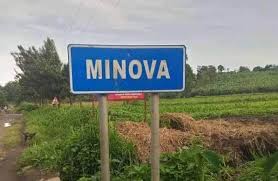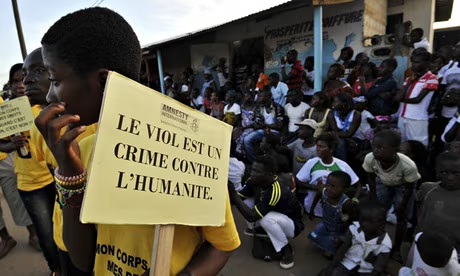45th Ordinary Session Of The African Commission on Human and Peoples’ Rights, May 13-27, Banjul, The Gambia
Statement By The Institute For Human Rights And Development In Africa (IHRDA) on The Implementation Of The Decision Of The African Commission on Human and Peoples’ Rights on Communication 292/2004 IHRDA/Angola
The Institute for Human Rights and Development in Africa (IHRDA) would like to urge the African Commission on Human and Peoples’ Rights to follow up on the implementation of its decision in Communication 292/2004 IHRDA/Angola. The African Commission should ensure that the Government of the Republic of Angola provides the victims with an effective remedy.
In 2004, IHRDA filed a communication on behalf of Mr Esmaila Connateh and 13 other Gambians deported from Angola in March, April and May of 2004, together with an estimated 126,247 other foreigners. They were expelled under a government programme called Operaçao Brilhante, whose aim was to rid the mining areas of foreigners. The complainants alleged that they were legally resident in Angola and possessed the requisite work permits and authorisations. In the process of expelling them, they were detained under grossly inhuman conditions. They were also not afforded access to due process to challenge the legality of their arrest, detention and deportation.
The Commission found Angola in violation of several articles in the African Charter. The Commission consequently recommended that the Republic of Angola review its immigration policies and legislation, policies and structures for detention, and afford procedural safeguards to persons detained. It also recommended that Angola allow the Commission, relevant international organisations, ICRC, NGOs and concerned consulates to access detention centres, including places where non-nationals are held. The Commission finally recommended that Angola establishes a Commission of Inquiry to investigate circumstances surrounding the expulsion of the victims and duly compensate them.
For the victims who lost their livelihoods and their life’s possessions, this decision has come as a new dawn. However the daylight is yet to be seen with the actual acknowledgment of wrongdoing by Angola and the payment of compensation. IHRDA has visited the victims in Basse, Gambissara and Banjul in the Gambia to document their living conditions. All the victims are not gainfully employed, living from hand to mouth. Some still bear the scars from being beaten by Angolan security officials and complain of occasional illness arising from the inhuman treatment they were subjected to.
In considering communications, the African Commission has reiterated many times that remedies have to be effective if victims of human rights violations are to receive justice. Since the victims were expelled in 2002, they are yet to receive any justice. The Commission itself took over 4 years to complete consideration of the communication. Though the victims welcomed the decision, they expressed serious concern over the delay. They were even more concerned about the implementation of the decision. Without the intervention of the African Commission, they have no hope of ever receiving compensation for their losses and the wrongs they suffered in Angola.
IHRDA therefore urges the Commission to follow up on the implementation of its decision in this communication. This would make the Commission’s recommendations real in the lives of persons who have suffered violations of their rights. By so doing, the Commission would be strengthening its protection mandate by ensuring that its decisions are complied with.
Declaracao do IHRDA Angola CmADHP [por] / Read this statement in Portuguese





